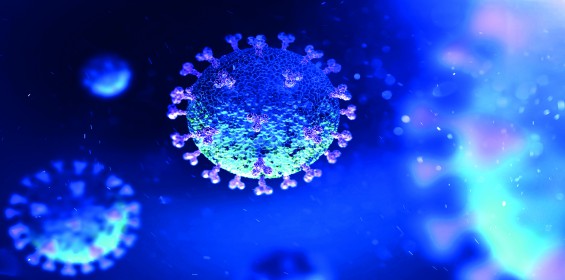BCAS reiterates air treatment advice for COVID-19 concerns
Published: 25 September, 2020
The British Compressed Air Society (BCAS) is reiterating its advice to compressed air users to adhere to air treatment best practice during the Coronavirus pandemic. PWE reports.
Early in the pandemic there were claims that compressed air may be a potential source of Coronavirus COVID-19, requiring the installation of sterile air filters (or more frequent filter sterilisations and element changes) to prevent the contamination of food, beverage or pharmaceutical products.
At this time, BCAS issued a statement of guidance quoting the World Health Organisation’s (WHO) position that Coronavirus COVID-19 was not an airborne virus. On 9th July 2020 the WHO updated its guidance to include the possibility of airborne transmission of the virus, stating that:
“Short-range aerosol transmission, particularly in specific indoor locations, such as crowded and inadequately ventilated spaces over a prolonged period of time with infected persons cannot be ruled out.
“However, the detailed investigations of these clusters suggest that droplet and fomite transmission could also explain human-to- human transmission within these clusters. Further, the close contact environments of these clusters may have facilitated transmission from a small number of cases to many other people (e.g., superspreading event), especially if hand hygiene was not performed and masks were not used when physical distancing was not maintained.”
BCAS has therefore updated its guidance to include the possibility of airborne/aerosol transmission, but would like to reassure users that this does not impact or change the previously stated advice about the risk and management of Coronavirus in relation to their compressed air system.
The simple facts:
• Compressor rooms are well ventilated.
• There is minimal risk of short-range aerosol transmission at the point of compressor intake.
• At the point of compression, the air temperature is high, the heating time is short and with the compression processes, viruses do not tend to survive.
• During compression, the compressed air temperature is higher than the temperature needed to kill COVID-19. It is documented that heat at 56oC kills the Coronavirus. See WHO information at: https://www.who.int/csr/sars/survival_2003_05_04/en/
• Appropriate downstream purification systems typically treat the compressed air to aerosol sizes significantly smaller than those referenced by the WHO (human generated aerosols
• The compressor has two-stage filtration (panel and intake filter) prior to compression. Air is drawn into an air compressor, through panel filters and then through intake filters on its way to the compression chamber. Ambient air contaminants would have to remain in aerosol form to pass through panel and intake filters in order to enter the compressor intake. This is highly unlikely, but even if panel and intake filtration was compromised, the contaminant would not remain in aerosol form during compression.
Best practice guide 102
BPG102 includes guidance on the installation of appropriate inline coalescing filtration and its regular maintenance, as these will remove multiple contaminants include micro-organisms, oil and water aerosols.
In addition, the guidance recommends using a dewpoint of -40 oC to inhibit the growth of micro-organisms, and filtration to reduce the micro-organisms and particulate.
The specification requires the installation of a minimum of two aerosol reduction filters (down to 0.01mg/m3 of oil aerosol and particle reduction down to 0.01 micron).
These protective measures will ensure that, in the unlikely event that the COVID-19 or other virus still survive the heat of compression, aerosol reduction filters in the compressor room combined with a very low dewpoint and point-of-use dry particulate filters will remove the risk from compressed air.
To see the previous guidance from BCAS, please visit:
https://www.bcas.org.uk/article/covid-best-practice-84.aspx
BPG102 is available for free download from the BCAS website: www.bcas.org.uk
********************
The British Compressed Air Society (BCAS) is offering a new training course for businesses and employees concerned about safe working practices during the Coronavirus pandemic.
Delivered via the society’s new online learning portal, the ‘Working safely during Covid-19’ course costs just £4.99 per delegate and details the Government guidance for maintaining a secure workplace, issued 18th May 2020.
It covers the key workplace types identified, including outdoor work, factories and warehouses, offices, branches and vehicles and is designed to fulfil the employer’s requirement to provide information and training to its employees.
The comprehensive course identifies the ways in which Covid-19 is spread from contaminated surfaces or respiratory droplets, and provides some practical workplace hygiene rules to help minimise risk.
It also offers useful guidance for maintaining safe social distancing when at a workstation, in meetings, when moving around the office or factory floor and when travelling in vehicles.
Health and scientific professionals have warned that the pandemic is unlikely to be a short-term crisis and that Covid-19 could circulate in the human population for the long-term, possibly causing periodic epidemics. The guidance covered in the training course will explain the need to remain vigilant and implement both appropriate social distancing and good hygiene regimes, to help maintain a safe and secure workplace for all employees.
Many employers will want to ensure that they fulfil their obligations to provide training to their staff about maintaining a Covid-19 secure workplace and this new BCAS course ensures that the advice provided is practical and easy to follow to help facilitate a safe return to work.
Numerous businesses have already participated in the course, with over 60 per cent of participants rating the quality of the content as excellent and over 70 per cent of delegates agreeing that the course structure was excellent and therefore, easy to follow,
All delegates receive a certificate in ‘Maintaining a Covid-19 secure workplace’ upon completion.
Businesses and employees interested in taking the course can register online at:
e-learning.bcas.org.uk or contact BCAS directly at training@bcas.org.uk
*****************************







